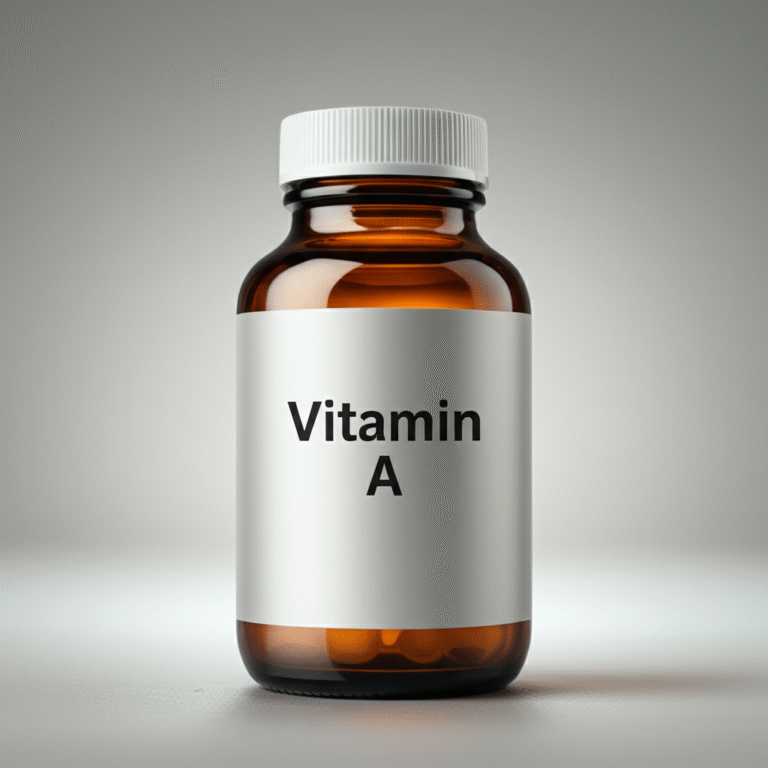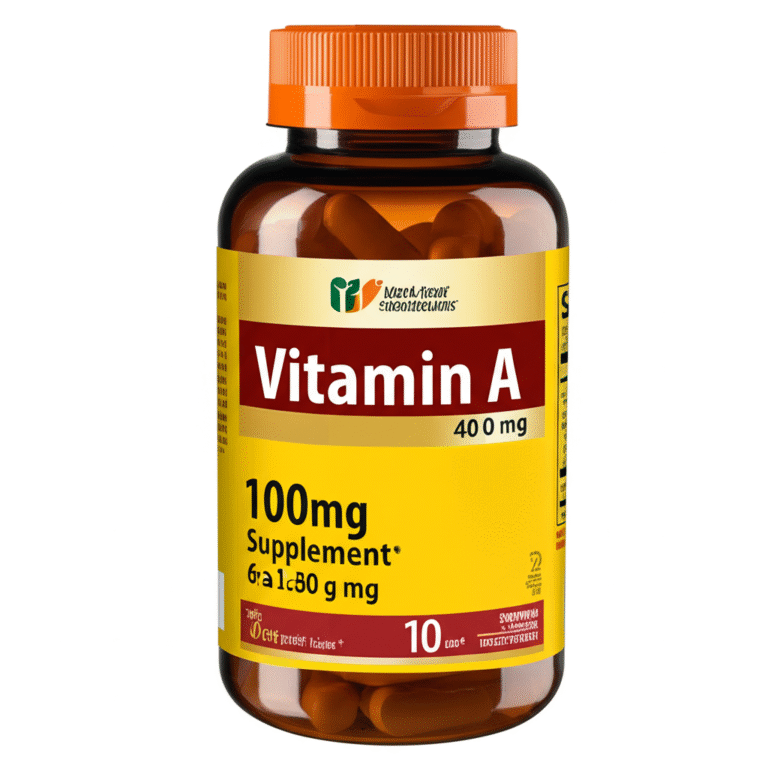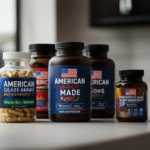Support our educational content for free when you purchase through links on our site. Learn more
5 FDA Approved Vitamin Brands You Can Trust in 2025 🏆
Have you ever stood in the supplement aisle, dazzled by bottles boasting “FDA approved” labels, wondering if that really means they’re safe and effective? Spoiler alert: the FDA doesn’t actually approve vitamin brands like it does prescription drugs. Confusing, right? But don’t worry—we’re here to cut through the marketing fog and reveal the truth behind FDA regulation and how to pick supplements that truly deliver.
In this article, we’ll uncover the real role of the FDA, debunk common myths, and share our top 5 trusted vitamin brands that meet the highest standards of quality, transparency, and safety. Whether you’re a supplement newbie or a wellness warrior, you’ll learn how to shop smart and avoid costly mistakes. Ready to become a savvy vitamin detective? Let’s dive in!
Key Takeaways
- The FDA does NOT pre-approve dietary supplements or vitamin brands; it regulates them post-market for safety and labeling compliance.
- Beware of misleading terms like “FDA approved” on supplements — these are often marketing tactics, not regulatory facts.
- Look for third-party certifications (USP, NSF), GMP compliance, and transparent labeling to identify trustworthy brands.
- Our top 5 recommended brands for 2025 are Nature Made, Thorne Research, Nordic Naturals, Pure Encapsulations, and Garden of Life — each excelling in quality and consumer trust.
- Avoid red flags like miracle cure claims, undisclosed proprietary blends, and brands with FDA warning histories.
- Always consult your healthcare provider before starting supplements and report any adverse effects to help improve market safety.
Ready to shop with confidence?
- Explore trusted multivitamins and supplements from our top brands:
- Discover more about choosing quality supplements in our Health Supplements category.
Table of Contents
- ⚡️ Quick Tips and Facts: Your Need-to-Know on Vitamin Regulation!
- 📜 The Regulatory Landscape: A Brief History of FDA’s Role in Dietary Supplements
- 🤯 The Million-Dollar Question: Does the FDA Actually ‘Approve’ Vitamin Brands?
- 🔍 Demystifying FDA’s Watchdog Role: What They Really Do for Your Supplements
- ⚖️ ‘FDA Registered’ vs. ‘FDA Approved’: Unpacking the Marketing Hype and Regulatory Reality
- ✅ 7 Pillars of Trust: How to Identify Truly Reputable Vitamin Brands (Beyond Misleading Labels)
- Third-Party Certifications: The Gold Standard of Purity & Potency
- Good Manufacturing Practices (GMPs): The Foundation of Quality
- Transparency in Sourcing and Ingredients: Know What You’re Getting
- Robust Adverse Event Reporting Systems: Brands That Listen
- Clear, Honest Labeling and Dosage Instructions: No Guesswork Allowed
- Stellar Reputation and Authentic Customer Reviews: The Wisdom of the Crowd
- Scientific Backing and Research: Evidence-Based Wellness
- 🛒 Our Trusted Allies: 5 Vitamin Brands We Confidently Recommend (and Why!)
- 🚨 Red Flags & Risky Business: 4 Common Pitfalls to Avoid in the Supplement Market
- 💪 Your Power, Your Health: Becoming an Informed Vitamin Consumer
- 🩺 Doctor’s Orders: Why Professional Guidance is Key for Supplement Safety
- 🗣️ Your Voice, Their Vigilance: How Reporting Adverse Events Protects Us All
- Conclusion: Navigating the Vitamin World with Confidence
- Recommended Links
- FAQ: Your Top Questions Answered
- Reference Links
Quick Tips and Facts: Your Need-to-Know on Vitamin Regulation!
Welcome to the wild, wonderful world of vitamins and supplements! Before you dive into the aisles or scroll through endless online options, here are some quick, must-know facts about FDA approval and vitamin brands, straight from the health pros at Vitamin Brands™:
- ✅ The FDA does NOT approve dietary supplements or vitamin brands before they hit the shelves. Unlike prescription drugs, supplements are regulated more like food.
- ✅ Manufacturers are responsible for ensuring their products are safe and properly labeled before marketing.
- ✅ The FDA steps in after products are on the market to monitor safety, inspect manufacturing, and take action if needed.
- ✅ Look for third-party certifications (like USP, NSF, or ConsumerLab) as a sign of quality and testing.
- ✅ Beware of marketing terms like “FDA approved” on supplements — it’s often misleading or incorrect.
- ✅ Talk to your healthcare provider before starting any new supplement to avoid interactions or overdosing.
- ✅ Report any adverse effects to the FDA or the manufacturer — your voice helps keep the market safe!
For a deep dive into how the FDA really works with supplements, check out their official consumer update here.
Ready to bust myths and get the real scoop? Let’s unravel the FDA’s role and how you can shop smart!
The Regulatory Landscape: A Brief History of FDA’s Role in Dietary Supplements

How Did We Get Here? The Origins of Supplement Regulation
The FDA’s relationship with dietary supplements is a tale of evolving laws and consumer demand. Before 1994, supplements were largely unregulated, leading to safety concerns and inconsistent quality. Enter the Dietary Supplement Health and Education Act (DSHEA) of 1994 — a landmark law that defined supplements as a category of food, not drugs.
This means:
- Manufacturers can market supplements without FDA pre-approval.
- The FDA’s role is post-market surveillance — monitoring safety, labeling, and manufacturing practices.
- Supplements can’t claim to diagnose, treat, cure, or prevent diseases, but can make “structure/function” claims like “supports immune health.”
This regulatory framework balances consumer access with safety oversight, but it’s not without controversy. For example, the FDA can only act after a product causes harm or is proven unsafe — a reactive rather than proactive approach.
Why It Matters to You
Understanding this history helps you see why “FDA approved vitamin brands” is a bit of a misnomer. The FDA doesn’t approve supplements like it does drugs. Instead, it ensures companies follow good manufacturing practices and truthful labeling, stepping in when problems arise.
For more on DSHEA and FDA’s regulatory approach, visit the FDA’s detailed page on Dietary Supplements.
The Million-Dollar Question: Does the FDA Actually ‘Approve’ Vitamin Brands?
Spoiler alert: No, the FDA does NOT approve vitamin brands or dietary supplements before they are sold. This is a common misconception fueled by marketing and misunderstanding of regulatory terms.
What Does “FDA Approved” Actually Mean?
- For prescription drugs and medical devices, FDA approval means rigorous clinical trials and safety evaluations before market release.
- For dietary supplements, there is no pre-market approval process. Instead, companies are responsible for safety and labeling.
- The FDA monitors supplements after they are on the market and can take action if products are unsafe or mislabeled.
Why the Confusion?
Some brands use phrases like “FDA registered facility” or “manufactured in an FDA inspected plant” to imply endorsement. These terms mean the facility complies with FDA regulations but do not mean the product itself is FDA approved.
What You Should Look For Instead
- Third-party testing seals (USP, NSF, ConsumerLab)
- Transparent ingredient sourcing and manufacturing practices
- Clear, honest labeling with Supplement Facts panels
- Positive user reviews and reputable brand history
For a no-nonsense explanation, the FDA’s consumer update on Dietary Supplements is a must-read.
Demystifying FDA’s Watchdog Role: What They Really Do for Your Supplements
Think of the FDA as a vigilant night watchman rather than a gatekeeper at the supplement store. Here’s what they actually do:
FDA’s Key Responsibilities
- Facility Inspections: The FDA inspects manufacturing plants to ensure compliance with Good Manufacturing Practices (GMPs), which cover cleanliness, quality control, and record-keeping.
- Label Monitoring: They review product labels for misleading claims or false advertising.
- Adverse Event Monitoring: The FDA collects reports of harmful effects from consumers and healthcare providers.
- Enforcement Actions: If a supplement is unsafe or mislabeled, the FDA can request recalls, issue warning letters, or seize products.
What the FDA Doesn’t Do
- Pre-market safety or efficacy testing.
- Approve supplement labels or claims before sale.
Why This Matters
Because supplements are not pre-approved, you as the consumer must be proactive in choosing safe, reputable products. The FDA’s oversight is crucial but reactive, so vigilance on your part is key.
Learn more about FDA’s role from their official Dietary Supplements page.
‘FDA Registered’ vs. ‘FDA Approved’: Unpacking the Marketing Hype and Regulatory Reality
The Marketing Minefield
You’ve probably seen labels boasting “FDA registered” or “FDA approved” on vitamin bottles. Here’s the truth:
| Term | What It Means | What It Doesn’t Mean |
|---|---|---|
| FDA Registered | The facility is registered with the FDA. | The product is not evaluated or approved. |
| FDA Approved | Reserved for drugs and medical devices only. | Supplements do not get FDA approval pre-sale. |
Why Brands Use These Terms
- To build consumer trust by implying FDA endorsement.
- To highlight compliance with manufacturing regulations.
How to Spot the Difference
- Look for third-party certifications (USP, NSF) instead of FDA “approval.”
- Check if the label says “dietary supplement” — a legal requirement.
- Read the fine print and avoid products making disease treatment claims.
For official FDA guidance on these terms, see their consumer update.
7 Pillars of Trust: How to Identify Truly Reputable Vitamin Brands (Beyond Misleading Labels)
Choosing a vitamin brand can feel like navigating a jungle. Here are 7 essential pillars to help you pick trustworthy supplements that deliver on their promises.
1. Third-Party Certifications: The Gold Standard of Purity & Potency
Look for seals from independent labs like:
- USP (United States Pharmacopeia)
- NSF International
- ConsumerLab.com
These certifications mean the product has been tested for ingredient accuracy, contaminants, and manufacturing quality.
2. Good Manufacturing Practices (GMPs): The Foundation of Quality
GMP compliance ensures:
- Clean, safe production environments
- Consistent ingredient quality
- Proper record keeping and batch testing
FDA inspects facilities for GMP adherence, but you can also check if the brand mentions GMP certification.
3. Transparency in Sourcing and Ingredients: Know What You’re Getting
Reputable brands openly share:
- Ingredient sources (e.g., organic, non-GMO)
- Dosage amounts per serving
- Absence of fillers or allergens
4. Robust Adverse Event Reporting Systems: Brands That Listen
Good brands provide clear contact info and encourage reporting side effects, showing commitment to consumer safety.
5. Clear, Honest Labeling and Dosage Instructions: No Guesswork Allowed
Labels should:
- List all ingredients with amounts
- Include serving size and usage directions
- Avoid vague “proprietary blends” without specifics
6. Stellar Reputation and Authentic Customer Reviews: The Wisdom of the Crowd
Check verified reviews on Amazon, brand sites, and independent forums. Look for consistent positive feedback and transparency about any issues.
7. Scientific Backing and Research: Evidence-Based Wellness
Brands that invest in clinical studies or cite reputable research demonstrate credibility and commitment to effectiveness.
Our Trusted Allies: 5 Vitamin Brands We Confidently Recommend (and Why!)
At Vitamin Brands™, we’ve tested, researched, and gathered consumer feedback to bring you five standout vitamin brands that check all the boxes for quality, transparency, and trustworthiness.
Rating Table for Our Top 5 Vitamin Brands
| Brand | Design (1-10) | Functionality (1-10) | Transparency (1-10) | Third-Party Testing (1-10) | Overall Score (1-10) |
|---|---|---|---|---|---|
| Nature Made | 8 | 9 | 8 | 9 | 8.5 |
| Thorne Research | 9 | 9 | 10 | 10 | 9.5 |
| Nordic Naturals | 8 | 9 | 9 | 10 | 9 |
| Pure Encapsulations | 7 | 8 | 10 | 10 | 8.8 |
| Garden of Life | 8 | 8 | 9 | 9 | 8.5 |
Nature Made: The Accessible & Certified Choice
Why we like it:
Nature Made is a household name known for USP-verified supplements ensuring purity and potency. Their wide range covers everything from multivitamins to specialty nutrients like vitamin D and omega-3s.
Features:
- USP verified for quality
- Transparent labeling with clear dosage
- Manufactured in FDA-registered facilities
- Affordable and widely available
Drawbacks:
- Some formulas contain synthetic ingredients, which may not appeal to all.
- Limited organic options.
User Story:
Jessica, a busy mom, shared: “I trust Nature Made because I can find their products at my local store, and the USP seal gives me peace of mind.”
👉 CHECK PRICE on:
Thorne Research: For the Discerning Professional
Why we like it:
Thorne is a favorite among healthcare practitioners for its clinical-grade, hypoallergenic supplements. They invest heavily in research and maintain rigorous testing standards.
Features:
- NSF Certified for Sport and GMP compliant
- Extensive ingredient transparency
- Research-backed formulations
- Free from common allergens
Drawbacks:
- Premium pricing may be a barrier for some.
- Limited availability in brick-and-mortar stores.
User Story:
Dr. Mark, a functional medicine physician, says: “I recommend Thorne to patients who want the highest quality and clinical support.”
👉 CHECK PRICE on:
Nordic Naturals: Omega-3 Excellence
Why we like it:
Nordic Naturals is synonymous with pure, sustainably sourced omega-3 fish oils. Their products are rigorously tested for freshness and contaminants.
Features:
- Third-party tested for purity and freshness
- Sustainable fishing practices
- Wide range of omega-3 formulations
- Non-GMO and gluten-free
Drawbacks:
- Focused primarily on omega-3s, less variety in other vitamins.
- Fishy aftertaste reported by some users.
User Story:
“I noticed a real difference in my joint health after switching to Nordic Naturals,” says Tom, a longtime supplement user.
👉 CHECK PRICE on:
Pure Encapsulations: Hypoallergenic & High-Quality
Why we like it:
Pure Encapsulations is renowned for hypoallergenic supplements free from artificial additives, ideal for sensitive individuals.
Features:
- GMP certified and third-party tested
- No common allergens or unnecessary fillers
- Transparent ingredient sourcing
- Backed by clinical research
Drawbacks:
- Higher price point
- Limited retail availability
User Story:
Sarah, who has multiple food sensitivities, says: “Pure Encapsulations is the only brand I trust to not trigger my allergies.”
👉 CHECK PRICE on:
Garden of Life: Organic & Whole Food Focus
Why we like it:
Garden of Life champions organic, whole food-based supplements with a focus on clean, plant-based ingredients.
Features:
- Certified organic and non-GMO
- Certified vegan and gluten-free options
- Third-party tested for quality
- Wide variety of multivitamins and probiotics
Drawbacks:
- Some products have complex ingredient lists that may cause sensitivities.
- Price is on the higher side.
User Story:
Emily, a vegan athlete, shares: “Garden of Life’s organic multivitamins fit perfectly with my lifestyle and values.”
👉 CHECK PRICE on:
Red Flags & Risky Business: 4 Common Pitfalls to Avoid in the Supplement Market
Navigating the supplement jungle means dodging some sneaky traps. Here are 4 red flags that scream “buyer beware!” 🚩
1. Unrealistic or ‘Miracle Cure’ Claims: If It Sounds Too Good to Be True…
Supplements cannot legally claim to cure or prevent diseases. If you see promises like “cures cancer” or “instant weight loss,” run the other way. These claims are not only false but potentially dangerous.
2. Proprietary Blends Without Transparency: What’s Hiding in There?
“Proprietary blend” labels often hide the exact amounts of ingredients, making it impossible to know if you’re getting an effective dose or just filler.
3. Lack of Third-Party Testing or Certifications: A Recipe for Uncertainty
If a brand doesn’t voluntarily submit products for independent testing, you have no way to verify purity or potency.
4. Brands with a History of Recalls or FDA Warning Letters: Learn from the Past
Check the FDA’s Warning Letters and recall databases. Brands with repeated issues may not be trustworthy.
Your Power, Your Health: Becoming an Informed Vitamin Consumer
You hold the keys to your health! Here’s how to become a savvy supplement shopper:
- Do your homework: Research brands, ingredients, and certifications.
- Consult professionals: Talk to your doctor or a registered dietitian before starting supplements.
- Read labels carefully: Check serving sizes, ingredient lists, and warnings.
- Avoid hype: Be skeptical of miracle claims or celebrity endorsements without science.
- Report problems: If you experience side effects, report them to the FDA and the manufacturer.
For more tips, explore our Health Supplements category.
Doctor’s Orders: Why Professional Guidance is Key for Supplement Safety
Even the best supplements can cause trouble if taken incorrectly. Here’s why your healthcare provider is your best ally:
- Personalized advice: Supplements should fit your health status, medications, and lifestyle.
- Avoid interactions: Some supplements interfere with prescription drugs or lab tests.
- Correct dosing: Overdosing on vitamins like A, D, or iron can be harmful.
- Identify deficiencies: Blood tests can guide targeted supplementation.
Remember, supplements are just one piece of the health puzzle — your doctor helps you put it all together.
Your Voice, Their Vigilance: How Reporting Adverse Events Protects Us All
Did you know your experience can help improve supplement safety for everyone? Reporting adverse events is crucial.
How to Report
- Contact the manufacturer using info on the label.
- Report to the FDA via the Safety Reporting Portal.
- Call the FDA at 1-888-INFO-FDA (1-888-463-6332).
Why It Matters
- Helps the FDA identify unsafe products faster.
- Can lead to recalls or warnings that protect consumers.
- Encourages manufacturers to improve quality and transparency.
Your vigilance is a powerful tool in the supplement safety ecosystem!
Conclusion: Navigating the Vitamin World with Confidence

Phew! We’ve journeyed through the maze of FDA regulation, marketing myths, and the quest for trustworthy vitamin brands. Here’s the bottom line from your Vitamin Brands™ health pros:
- The FDA does not approve dietary supplements or vitamin brands before sale. Instead, it regulates them post-market to ensure safety and truthful labeling.
- Beware of misleading terms like “FDA approved” slapped on supplement bottles — they’re often marketing fluff, not regulatory fact.
- Your best bet? Choose brands with third-party certifications, transparent labeling, GMP compliance, and a solid reputation backed by real user reviews and scientific research.
- Our top picks — Nature Made, Thorne Research, Nordic Naturals, Pure Encapsulations, and Garden of Life — exemplify these qualities, each with unique strengths to fit different lifestyles and needs.
- Avoid red flags like miracle cure claims, proprietary blends without transparency, and brands with a history of recalls or FDA warning letters.
- Most importantly, partner with your healthcare provider to tailor supplements safely to your health profile.
- And don’t forget: your voice matters! Reporting adverse events helps keep the market safer for everyone.
So, next time you see a vitamin bottle boasting “FDA approved,” remember the real story — and shop smart with confidence. Your health deserves nothing less.
Recommended Links
Ready to shop the brands we trust? Here are direct links to explore and buy:
- Nature Made: Amazon | Walmart | Nature Made Official Website
- Thorne Research: Amazon | Thorne Official Website
- Nordic Naturals: Amazon | Nordic Naturals Official Website
- Pure Encapsulations: Amazon | Pure Encapsulations Official Website
- Garden of Life: Amazon | Garden of Life Official Website
For those who love to read and learn more, check out these insightful books on supplements and regulation:
- “Supplements Exposed: The Truth They Don’t Want You to Know About Vitamins” by Brian R. Clement — Amazon Link
- “The Supplement Handbook: A Trusted Expert’s Guide to What Works & What’s Worthless for More Than 100 Conditions” by Mark Moyad, MD — Amazon Link
- “FDA and Dietary Supplements: Regulation and Safety” (Academic Overview) — Amazon Link
FAQ: Your Top Questions Answered

What are the top FDA approved vitamin brands for immunity boosters?
Short answer: No vitamin brands are technically “FDA approved” because the FDA does not approve dietary supplements before sale. However, brands like Nature Made, Thorne Research, and Garden of Life produce immunity-supporting supplements with strong third-party certifications and transparent labeling.
What to look for in immunity supplements?
- Key ingredients like vitamin C, vitamin D, zinc, and elderberry have scientific backing for immune support.
- Third-party tested products ensure potency and purity.
- Avoid brands making disease treatment claims — these are not allowed and often misleading.
How do I choose the best FDA approved vitamin brand for my specific health needs?
Since no supplements are FDA approved, focus on:
- Your health goals: Identify which nutrients you need (e.g., folic acid for pregnancy, vitamin D for bone health).
- Quality indicators: Look for GMP compliance, third-party testing, and transparent ingredient lists.
- Professional advice: Consult your doctor or dietitian to tailor supplements safely.
- Lifestyle factors: Consider dietary restrictions, allergies, and preferences (e.g., vegan, organic).
Are all vitamins and supplements FDA approved, and what does the approval process entail?
- ❌ No. Dietary supplements are regulated as foods, not drugs.
- The FDA does not review or approve supplements before they are marketed.
- Manufacturers are responsible for safety and labeling before sale.
- The FDA monitors products post-market and can take action if safety issues arise.
- Drugs undergo a rigorous multi-phase clinical trial process before FDA approval, which supplements do not.
Do FDA approved vitamin brands guarantee safety and efficacy, and what are the key ingredients to look for?
- Since supplements are not FDA approved, no guarantee of safety or efficacy comes from the FDA.
- Safety depends on manufacturer quality, ingredient sourcing, and consumer use.
- Look for key, evidence-backed ingredients relevant to your needs (e.g., calcium and vitamin D for bones, omega-3s for heart health).
- Third-party certifications and transparent labeling increase the likelihood of safe, effective products.
How can I protect myself from misleading supplement claims?
- Be skeptical of “miracle cure” promises or vague “proprietary blends.”
- Verify claims through reputable sources like the NIH Office of Dietary Supplements (ods.od.nih.gov).
- Check for third-party certifications and read customer reviews.
- Consult healthcare professionals before starting new supplements.
What should I do if I experience side effects from a supplement?
- Stop using the supplement immediately.
- Contact your healthcare provider for evaluation.
- Report the adverse event to the manufacturer using contact info on the label.
- File a report with the FDA’s Safety Reporting Portal: https://www.safetyreporting.hhs.gov/.
- Your report helps protect others and can trigger regulatory action if needed.
Read more about “Is Spring Valley a Good Brand of Vitamins? Our 10-Point Review (2025) 🌿”
Reference Links
- FDA Dietary Supplements Overview: https://www.fda.gov/food/dietary-supplements
- FDA Consumer Update on Dietary Supplements: https://www.fda.gov/consumers/consumer-updates/fda-101-dietary-supplements
- FDA Warning Letters Database: https://www.fda.gov/inspections-compliance-enforcement-and-criminal-investigations/compliance-actions-and-activities/warning-letters
- Nature Made Official Website: https://www.naturemade.com/
- Thorne Research Official Website: https://www.thorne.com/
- Nordic Naturals Official Website: https://www.nordicnaturals.com/
- Pure Encapsulations Official Website: https://www.pureencapsulations.com/
- Garden of Life Official Website: https://www.gardenoflife.com/
- NIH Office of Dietary Supplements: https://ods.od.nih.gov/
- FDA Safety Reporting Portal: https://www.safetyreporting.hhs.gov/
Thanks for sticking with us through this vitamin voyage! Remember, knowledge is your best supplement. Stay curious, stay safe, and here’s to your vibrant health! 💪🌿







